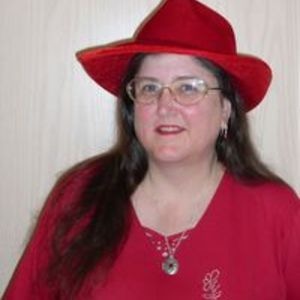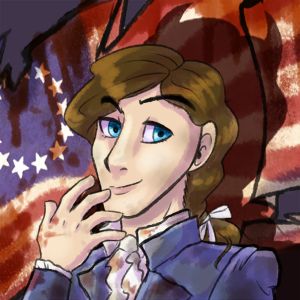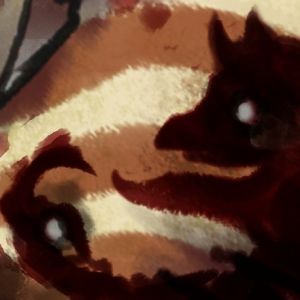October 23, 1772 through February, 1773
I fell down for the last time along the outskirts of town. Someone found me just before I passed out. I came to in Dr. Pruitt’s office. He looked after me as others ran off to put out the blaze before it reached the city. I lay in and out of consciousness. People said afterward that I babbled nonsense. One thing I remember clearly. A new word was on my tongue: vrykolakas. I partly knew what it meant, and I yearned to know more.
The doctor said I deserved the singeing from the fire because I had “gone off to be idle in the woods.” So much he didn’t know about my “idleness”!
As I recovered, the woman who had burned in the pit seemed like a figure in a fevered dream. But the monster of which she spoke—that burned on my hot forehead like a brand. I almost felt as if there was nothing I had to do to cross over to becoming it—that I had initiated myself into that world when I pushed her into the fire and sealed that initiation by staying to watch her die. When I remembered the scene, I twitched—whether from anxiety or excitement, I couldn’t say. Perhaps they were all one to me. I had killed—killed a person for the first time. I wanted it to be easier next time, not harder. So I leaned toward thinking of the reaction as excitement, pleasurable rather than fearful. I seemed to be able to train myself to like these feelings.
I had not solved the problem of my mortality, however… not yet.
For a long time, I didn’t venture back into the now blackened forest, not even to see if the wigwam where I’d hidden my latest journal still stood. Was it upwind of the firepit? I had made another leap into adulthood in the direction of my future; I could leave that journal behind. Only the thought of others tromping through the area and invading my privacy made me worry. Mother’s finding my journal when I was eleven was too close a call. I couldn’t risk such discovery again. Still, something made me delay looking—a fear, perhaps, that someone would watch me and guess that I had something to do with the Greek woman’s death.
By the time I actually ventured in that direction, the blackened trees and ground were covered with snow. It was hard to recognize landmarks; I looked for boulders and for trees that had been sparse of leaves before the fire, but I lost my way and had to backtrack a number of times. At last I passed most of the damage, and I found the wigwam, only partly damaged by the flames. It had been close to the edge of the fire but partly upwind, I could tell. I stooped to enter and looked to the left. The sticks where I had hidden the box that protected the little book was torn, and both box and book were missing. I searched frantically all through the sticks and branches that made up the structure and found nothing! Had someone discovered my journal when the community was putting out the fire? They were likely to read it and know whose it was.
From then on, I looked on all my neighbors and family members with suspicion and wondered if there was anything I could do to save my reputation. The faces in church or on the streets, in the homes and businesses where I finally helped with a few of Dr. Pruitt’s house calls, never seemed the same to me. Any glance held potential condemnation. Any word to me or about me might hold some hidden meaning. If anyone had learned my hidden thoughts, they might suspect I had killed the woman in the woods. Such thoughts increased my fear of dying and encouraged my search for immortality. Seeking information about the vrykolakas, I borrowed books from many people and missed sleep reading them. I sought out more strangers from foreign lands and listened to their tales. I pried them with questions. I had learned Greek from my schooling in biblical languages, and that was how I recognized it when the woman had prayed at the fire pit. But the word I sought wasn’t in any Bible commentary that I could find. And no other Greeks came to our colony.
The colonies continued to protest the King’s treatment of us here in America. I couldn’t always be sure if the news printed and spoken was true, but it was obvious we were being taxed beyond endurance. A few common items here and there… and then more that hurt everybody, rich and poor. I heard that King George was insane and would listen to no reason. That seemed like a larger version of my family life.
One morning after church, Nathan, the uncanny visionary, approached me with such a serious expression I thought he had discovered one of my two missing journals. He invited me to take a walk with him. We strolled some way, approaching the edge of the woods, where he pointed out some fresh green shoots coming up from the remaining snow. “Look how new life arises from death,” he said. But his voice failed to match the joy of his words.
“Sir?” I asked. “Is this about what you told me earlier—about my dying in the next war? Because if there is some way—”
“No, I have received no further messages about that,” he said, voice still sober. “But as a person who will be going to Heaven before me—or so I think, I have no premonitions about my own departure—I thought you might be the best one to pray with me about some disturbing dreams I have had.”
“About what?” It warmed me within to be trusted—even if it meant being reminded Nathan thought I would be dead soon. It was much better than being judged wanting.
Nathan took a deep breath. “I thought the first one a common nightmare—a mere attack of the Devil on the peace I have in Christ—and I asked God to keep such dreams from returning and even to erase my memories of its horrors. Instead, I dreamed again of them, the very next night.”
“Them?”
“Human—leeches.”
“What do you mean?”
“Men and women who drink blood like the leeches doctors use, but—not to cure anything.” His face was pale. He shivered, and I was sure it wasn’t from the late winter wind.
My heart sped up. I leaned forward to hear more.
“They attacked with violence and drained their victims to death. I continued to pray against the dreams, but after a third, I felt the Lord telling me they were a warning I must heed.”
“Are you suggesting—these leech—people—might be real?” I ventured.
“I know it may sound absurd. But I must find out,” Nathan said.
“Perhaps… I could help you with that,” I ventured.
He looked at me carefully—upward, I must say, as I was still shooting up in height. I was now seventeen, and he was in his twenties. “What would you do?” he asked.
“Ask people questions. Look for m—for books.” I almost slipped and said “more books.”
“And pray with me,” he added, as if he thought it bore repeating—not knowing the absurdity of asking me to pray. “Somehow I thought of you when I had these dreams.”
I was relieved he wasn’t spiritually sensitive enough to make the right connection, and I delighted that he did not suspect my secret reason for joining him in researching the beings. I now had a reason to ask openly about them without anyone suspecting trouble on my part. Nathan and I helped each other search for news and books.
At last, I heard of something called a “vampire,” mentioned in a book called The Travels of three English Gentlemen, from Venice to Hamburgh. The account claimed that many people suffered fatal attacks, and before they died some said they were assaulted by the specters of people who had recently themselves died. The bodies of such people were dug up and found to be not only fresh but glutted with blood. The people they attacked also became vampires, so they had to be run through with wooden stakes in their graves.
I read this account with supreme interest, and, when I showed it to Nathan, pretended anguish. I believed I had found evidence of the beings the Greek woman had told me about. “What now?” I asked Nathan.
“We do as always,” he said. “We wait on the Lord.”
Inwardly, I cringed. My greatest enemy was not who I wanted to wait for. If it was God indeed who had given Nathan the dreams, what was He warning him about, and what did God intend for me? Could I get around it? Could I gain the things I wanted? Immortality—respect—freedom to do as I pleased? I knew one thing: I would never think about bloodletting the same way. Whether I drained it or watched someone else do so, seeing the bright crimson flow sped my heart and made me think of sparing and extending my own life. When the doctor bled someone, he carefully measured the amount in a cup. But if I got the chance, I tasted it. And when I did, my heart sped even more… and then calmed, as if I had received comforting nurture from the blood. I needed nurture from somewhere. The world did not love the kind of person I really was.











Comments (0)
See all